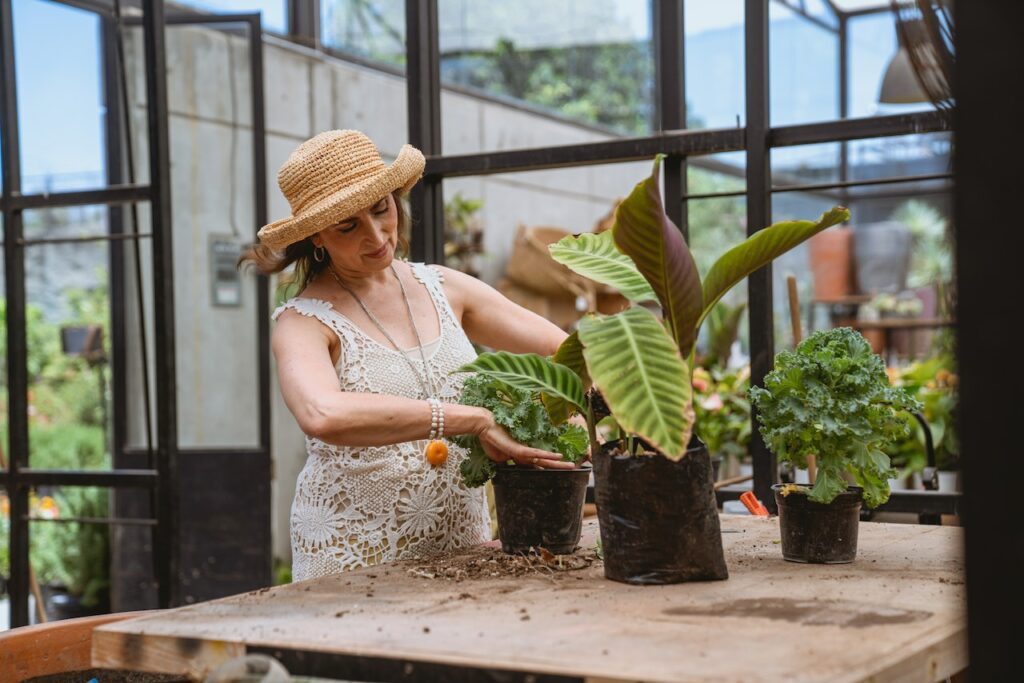Which are the best coffee alternatives for seniors?
Being diagnosed with hypertension by my doctor was a wake-up call. I was afraid to give up my daily coffee habit after years of enjoying it. Coffee was a crucial element of my daily ritual and a comfort in my ever-changing existence. After my diagnosis, I recognized I needed to alter my health. This revelation inspired me to discover alternatives to lower my blood pressure and provide the same ritual and delight as coffee.
I recall the early days of this change. The morning was quiet without my coffee maker. A sensation of loss, like saying goodbye to an old friend. I found a universe of drinks I had never considered while I explored coffee alternatives. From chicory coffee’s earthiness to herbal teas’ calming warmth, each new discovery was an adventure. I like trying new mixes and tastes for their subtleties.
My first sip of golden milk was unforgettable. Bright colors and fragrant spices delighted the senses. As I drank it, I felt relaxed and realized that this trip was about living a better lifestyle, not simply finding a coffee alternative.
This research became a joyful quest for wellness. I realized that treating hypertension doesn’t have to entail losing fun. Finding new ways to enjoy life’s moments, one cup at a time. I now enjoy my morning smoothie or herbal tea with thankfulness, knowing that each sip toasts my health and the thrill of discovery.

What links caffeine and hypertension?
Retirement health is a reflection of life events and lifestyle choices. Our love of coffee is frequently questioned, especially for hypertensives. Understanding the association between coffee and blood pressure is vital as we age and strive for optimum health.
Coffee’s main stimulant, caffeine, interacts complexly with our cardiovascular system. It temporarily raises blood pressure by inhibiting a hormone that expands our arteries. A normal blood pressure increase is generally brief. Hypertensives have a different tale. The American Heart Association notes that caffeine raises blood pressure shortly after ingestion, but its long-term consequences are unknown. This response is particularly relevant for seniors since metabolism and sensitivity influence how our systems metabolize caffeine.
Seniors with hypertension have two issues. First, our blood pressure surge after coffee consumption might be stronger and longer, straining our cardiovascular system. Second, and maybe more significant, is cumulative impact. Our blood arteries grow less flexible with age, making them more prone to high blood pressure. Even short caffeine increases might increase cardiovascular strain over time.
Caffeine may also impair our sleep habits, which typically change with age. Poor sleep quality raises blood pressure, perpetuating hypertension.
We don’t have to give up coffee, but moderation is crucial. Choosing decaf or reducing daily glasses might help. A 2017 “Journal of Human Hypertension” research indicated that limiting caffeine consumption lowers blood pressure, especially among hypertensives.
Chicory Coffee
In our golden years, particularly for hypertensives, finding a good coffee alternative is crucial. Chicory coffee is a unique and healthy option. Chicory coffee, prepared from roasted chicory roots, is a unique alternative for seniors trying to cut caffeine consumption owing to hypertension.
Chicory root has long been used as a coffee replacement and medicine. It tastes and looks like coffee when roasted and ground, making it a good caffeine substitute. Since it’s caffeine-free, it won’t raise blood pressure like coffee.
Chicory root has health advantages beyond caffeine replacement. Inulin, a soluble fiber, aids digestion. Prebiotics like inulin nourish gut microorganisms, which are essential for seniors’ health. Chicory root also reduces inflammation and improves blood sugar regulation, which improves cardiovascular health.
Consuming chicory coffee may be pleasurable. It may be made like coffee and eaten black or with milk. Its somewhat woody and nutty taste tastes like coffee without the caffeine.
Chicory coffee is safer than normal coffee and provides nutrients for seniors’ diets, particularly those with hypertension. It combines tradition and health for a soothing, healthy drink. As we explore methods to tailor our diets to our health demands, chicory coffee stands out as a good contender, giving the satisfying taste of coffee without the health hazards of caffeine. This chicory coffee from Amazon is compatible with Keurig 2.0 K-Cup Brewers, so you may give it a shot!
Golden Milk
Golden milk, also known as turmeric milk, is a traditional Indian drink that is popular worldwide, especially among seniors seeking healthy beverages. This warm, calming drink is delicious and full of health advantages, making it a great option for retirees, particularly those with hypertension.
The golden milk recipe is simple yet powerful. Turmeric, an antioxidant and anti-inflammatory spice, is the main component. Golden milk is made by adding a teaspoon of ground turmeric to a cup of milk (cow’s, almond, or coconut milk, depending on diet or lactose sensitivity). Add cinnamon, ginger, and black pepper to the mixture and gently heat. Black pepper improves curcumin absorption, the active ingredient in turmeric. Some add honey or maple syrup for flavor.
Golden Milk has special health advantages for seniors:
- Curcumin, turmeric’s major ingredient, has anti-inflammatory properties that may reduce joint discomfort and arthritis in older people.
- Antioxidants in turmeric promote immunity. This is helpful since our immune systems deteriorate with aging.
- Regular golden milk usage improves heart health. This drink’s components enhance blood circulation and lower cholesterol, which are essential for hypertension and cardiovascular health.
Herbal Teas
Herbal teas are valued as coffee replacements, particularly for hypertensive elders. These caffeine-free teas from herbs, flowers, and spices help regulate blood pressure and give other health advantages. Let’s look at some of the greatest herbal teas for seniors’ blood pressure.
1. The vivid blossoms of the Hibiscus sabdariffa plant make hibiscus tea, which is bright red and acidic. Hibiscus tea lowers blood pressure in addition to its aesthetics. According to a study in the Journal of Hypertension research, Hibiscus tea reduced systolic blood pressure in moderate hypertensives. Hibiscus phytochemicals seem to decrease blood pressure by relaxing blood vessels.
2. Chamomile Tea: The chamomile flower makes great, tasty, relaxing tea. Sleep and stress reduction are important blood pressure control elements; thus, it’s commonly suggested. Despite little research, chamomile tea’s stress-reduction characteristics may help seniors regulate hypertension, making it a useful evening routine addition. I always order this chamomile tea from Twinnings via Amazon!
3. Green Tea: Green tea contains less caffeine than coffee. Green tea contains polyphenols and catechins, which reduce blood pressure and enhance blood vessel function. A systematic European Journal of Clinical Nutrition evaluation found that green tea somewhat reduced blood pressure.
These teas are great for seniors who want to switch from coffee to something more hypertension-friendly since they have different flavors and health advantages. Their hot or cold flavor makes them suitable for any season or time.

Decaffeinated Coffee
Decaffeinated coffee, or “decaf,” is a common option for seniors who want coffee without caffeine. Knowing how decaffeination works is important, particularly for persons with hypertension who must limit caffeine consumption.
Coffee beans are decaffeinated while keeping taste and fragrance. Most decaffeination processes include soaking or heating beans with a caffeine-dispersing solvent. Most solvents are water, organic, or carbon dioxide. After caffeine dissolves, beans are washed well. The objective is to remove as much caffeine as possible—usually 97%—while preserving other key components that give coffee its taste.
Decaf coffee is safer for seniors with hypertension or other caffeine-related disorders. Decaf lets you enjoy coffee without the blood-pressure-raising effects of caffeine. This makes it a pleasant and familiar option for those of us who have always liked coffee but now need to monitor our health.
However, choosing the right decaf coffee is crucial. Not all decaf is the same. You may use these cautions to identify which decaffeinated coffee is unhealthy:
The decaffeination procedure may involve chemical solvents like methylene chloride or ethyl acetate. Although these solvents are safe in tiny doses after processing, some persons may want to avoid them for health or personal reasons. Look for solvent-free “water-processed” or “Swiss water-processed” decaf coffee.
Because decaffeination masks bean taste, lower-quality beans are often utilized for decaffeinated coffee. Quality premium decaf coffees improve flavor and experience.
Additives & Flavorings: Decaf coffees may add flavors to compensate for taste loss. Check the label for extra ingredients, particularly if you have dietary restrictions or health issues.
Overall, decaffeinated coffee is a traditional choice for seniors trying to cut caffeine, especially those with hypertension. It provides the comfort of coffee without the caffeine hazards. Be careful and educated to guarantee your decaf coffee meets your health and fitness objectives.
Vegetable and Fruit Smoothies
Fruit and vegetable smoothies are a tasty and nutritious alternative to coffee for seniors with hypertension. These vivid, tasty smoothies are full of nutrients that revitalize without raising blood pressure.
The technique of making a fruit and vegetable smoothie is endlessly customizable to personal taste and health demands. Because potassium lowers blood pressure, mix substances that are naturally low in sodium and rich in potassium. When combined with fruits, leafy greens like spinach or kale are vitamin-rich and mild. Fruits like berries, bananas, and apples offer sweetness and minerals. High antioxidant content and low calorie count make berries healthy.
Avocado or a dollop of nut butter adds smoothness and healthful fats. These improve smoothie smoothness and nutrients. Instead of dairy milk or juice, use water, almond milk, or coconut water for the liquid component. These are lower in calories and sugar.
Add protein to your smoothie to make it fuller. A scoop of protein powder, a handful of almonds, or a bowl of Greek yogurt may help seniors maintain muscular health.
Beware of additional sweets for your sweet tooth. A little honey or dates may sweeten your smoothie without adding sugar.
Add a dash of cinnamon or a tiny piece of peeled ginger to your smoothie to make it more refreshing. These spices provide taste and reduce inflammation, improving health.
YOU MAY ALSO LIKE: Top 8 Best Breakfast Foods for Seniors, According to Dietitians














